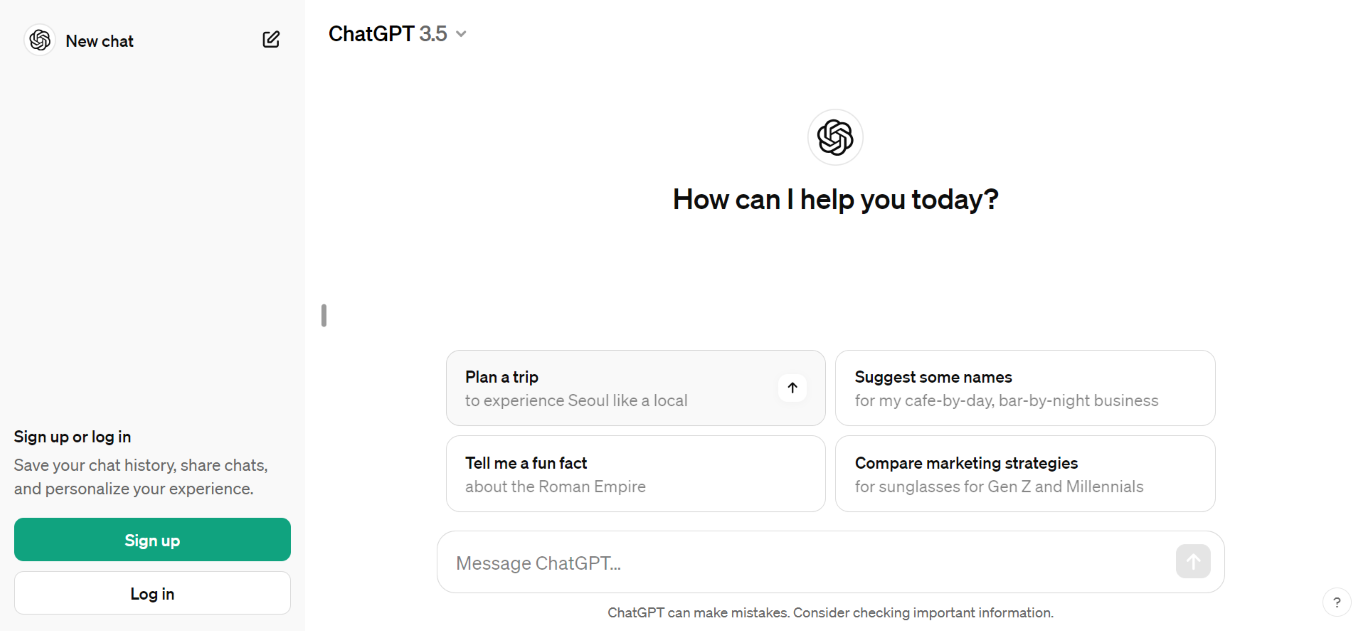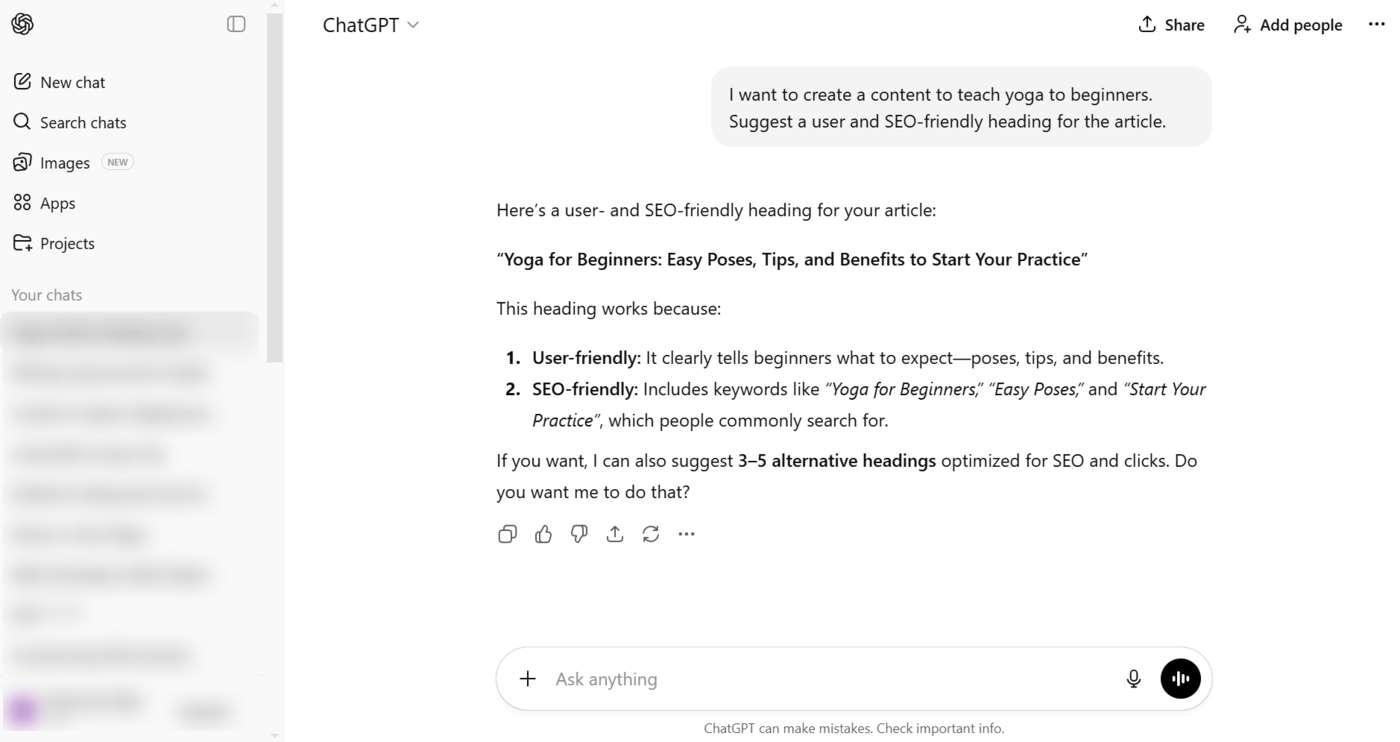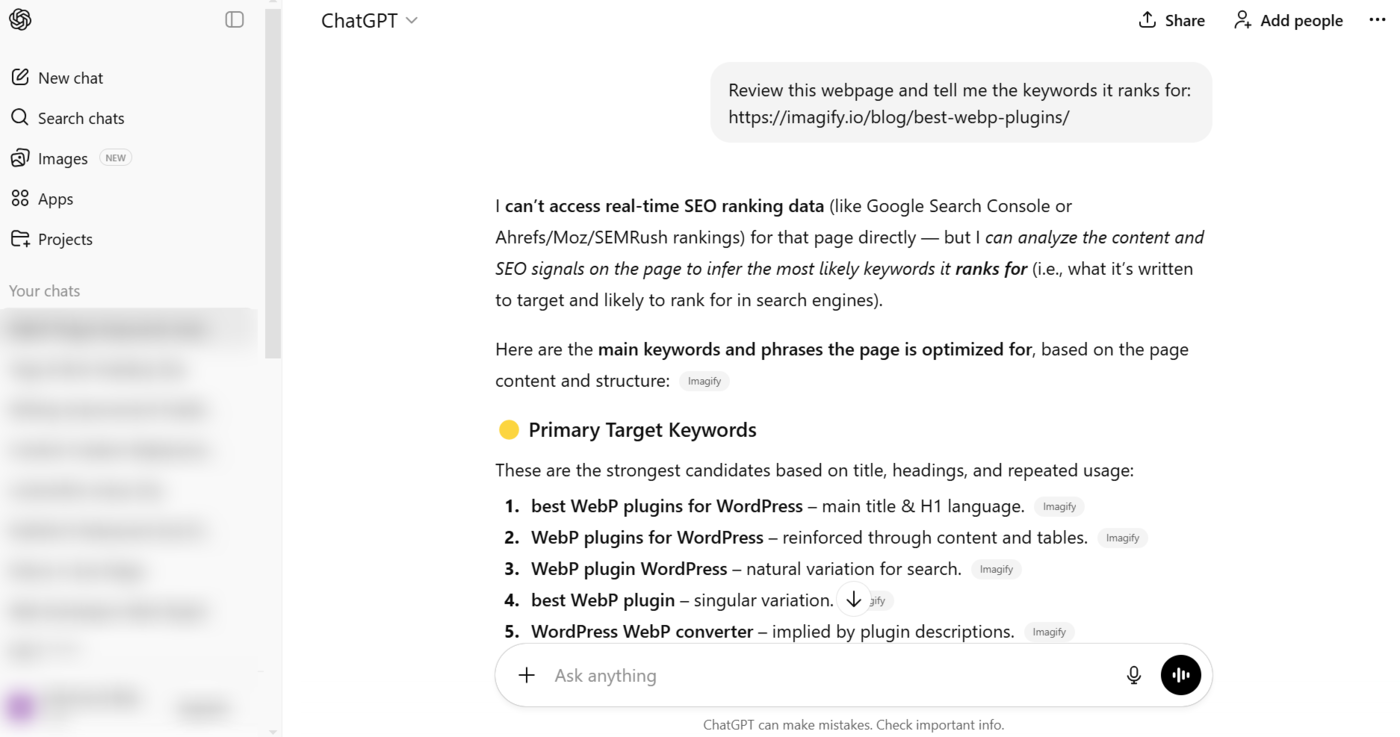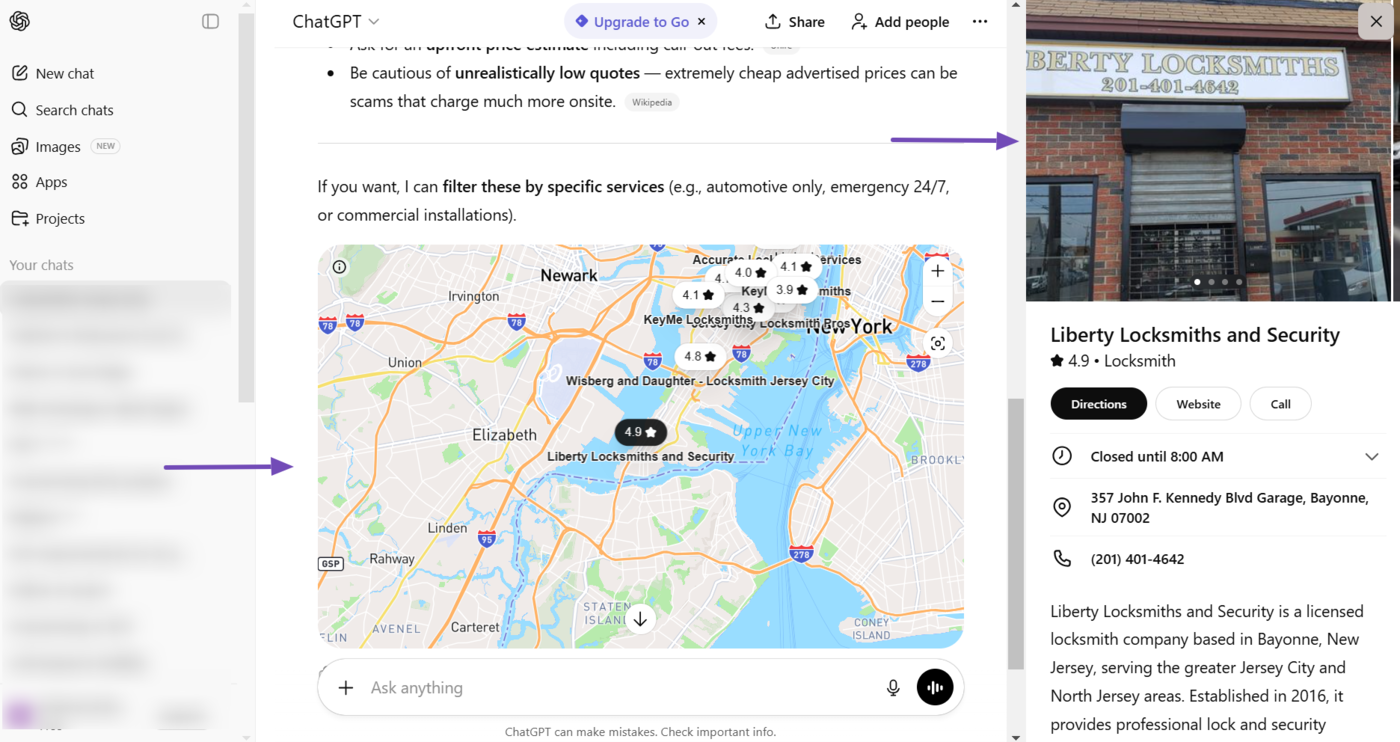What is ChatGPT?
ChatGPT is a generative KI chatbot developed by OpenAI. It can be used to generate human-like text for a variety of applications, including content creation, translation, summarization, and coding. It can also function as an AI-powered search engine, often referred to as an answer engine.
ChatGPT is powered by the GPT (Generative Pre-trained Transformer) large language model (LLM). OpenAI released it to the public on November 30, 2022.

ChatGPT is free. However, paid users can access additional features, including a more advanced version and the ability to use image and voice prompts. Paid users can also use ChatGPT to generate images.
Since ChatGPT is a language model, the images are generated using the DALL·E 3 image AI model, which was also created by OpenAI.
For example, users can upload a photo to ChatGPT and ask questions about it. They can also take photos of a mathematical equation and ask ChatGPT for hints on how to solve it. They can also take pictures of the ingredients and foodstuffs in their pantry and ask ChatGPT to generate a relevant recipe.
Importance of ChatGPT
Bloggers use ChatGPT to speed up and streamline their content creation and optimization process. For example, they can use it to generate engaging, high-quality articles quickly. They also use it to:
- Outline articles
- Brainstorm ideas
- Research content and keywords

This allows bloggers to save time on their research and content creation processes and instead focus on refining their content and publishing more articles than usual. As a result, bloggers can better keep up with the demands of blogging and publish more content consistently.
Bloggers also use ChatGPT as an SEO tool. For example, they can use it to analyze existing content for SEO purposes. ChatGPT works for this because it can:
- Provide insights to improve search rankings
- Identify the keywords in existing content
- Suggest relevant keywords
Notiz: ChatGPT does not have access to SEO metrics such as search volume und keyword difficulty. So, it does not replace your SEO tools but instead supplements them.

Moreover, ChatGPT can generate SEO elements, such as the meta title, meta description, header tag, and other auf Seite SEO elements that enhance the chances of articles being discovered on Suchergebnisseiten.
ChatGPT can also function as a search engine. It can return answers to regular search terms and even local search queries, just like the Google local pack.

Why Bloggers Should Care About ChatGPT
Bloggers should care about ChatGPT because it is a powerful tool that can significantly enhance their content creation process. It helps them save time, boost productivity, and maintain a consistent publishing schedule.
Additionally, ChatGPT helps bloggers overcome writer’s block, which can hinder their ability to create content.
Overall, bloggers that include ChatGPT in their creation process free up more time, which allows them to focus on their strategy, engagement, and earning backlinks while relying on ChatGPT to handle the more repetitive or time-consuming tasks.
How ChatGPT Benefits Bloggers
ChatGPT offers bloggers a powerful tool to streamline their content creation process and enhance their productivity. Multiple bloggers use it to automate tasks, save time, and overcome content creation challenges.
1 It Saves Time and Boosts Productivity
ChatGPT can handle time-consuming tasks like drafting blog posts, generating outlines, and brainstorming ideas. This frees the blogger to focus on other tasks, such as Stichwortforschung, optimization, off-page SEO, and image generation.
2 It Helps to Overcome Writer’s Block
ChatGPT serves as a creative assistant, offering fresh ideas and perspectives that can inspire bloggers when they are stuck. This is particularly helpful when bloggers encounter writer’s block, which occurs when writers encounter a creative slowdown that slows down or even prevents them from creating content entirely.
3 It is Cost-Effective Compared to Hiring a Writer
Hiring professional writers or editors can be expensive. However, ChatGPT is a cheaper alternative. Even the free version can generate really useful content. ChatGPT also avoids the attendant expenses and issues of hiring employees, such as paying health benefits and pensions and supervising their work.
Practical Tips for Using ChatGPT Effectively
Bloggers need to use ChatGPT strategically and thoughtfully to make the most out of it. This allows them to harness ChatGPT’s potential to the fullest while maintaining their unique voice and churning out content that is helpful to their visitors.
1 Use Clear and Specific Prompts
Clear prompts help ChatGPT generate more accurate and relevant responses. So, provide clear and specific prompts that clearly outline your requirements for ChatGPT. The more precise your instructions, the more valuable the output will be.
For example, instead of giving ChatGPT a vague prompt like “Write about blogging,” use a more specific prompt like “Write a two-paragraph introduction to an article on blogging for beginners. The article is titled “Blogging for Beginners” and is targeted at newbie bloggers.”
Entering prompts into ChatGPT can be overwhelming, particularly for a new user. In this case, you may need to enter a few prompts and compare their responses to determine which one works best.
2 Treat Chatgpt as an Assistant and Not a Replacement
ChatGPT performs best when it is considered an assistant. It is not a complete replacement for human creativity. Instead, it is a brainstorming partner, research assistant, and a starting point for your content.
Use ChatGPT to generate ideas, outlines, or rough drafts, but always edit, refine, and expand on its output. This approach ensures your content remains original and tailored to your audience. Relying solely on ChatGPT can lead to generic or impersonal content. Treat it as a collaborator, not a substitute.
3 Review ChatGPT’s Output for Flow, Accuracy, and Expertise
ChatGPT does not replace a writer. It can make mistakes, too. So, make sure to review every factual information from ChatGPT for accuracy. You should also edit its output to fit in with the rest of the content on your site.
Precisely, you should edit to ensure the writer’s voice, tone, and style match yours. You must also infuse your expertise into the content.
Infusing your expertise ensures that your content keeps to the same standard that your audience expects. This ensures your content resonates with your audience and aligns with your brand. It also ensures that your content conforms with Google’s guidelines on using generative AI content on your site.